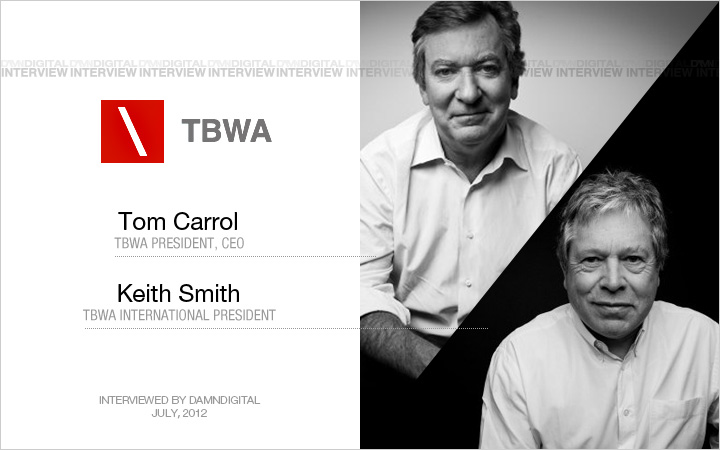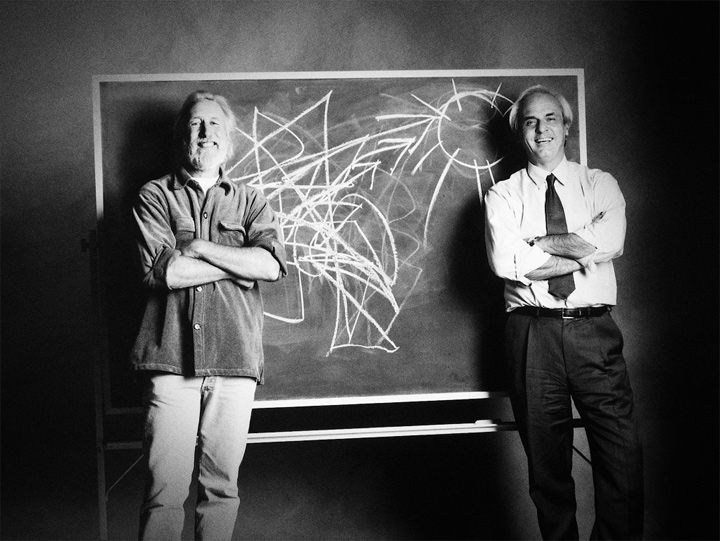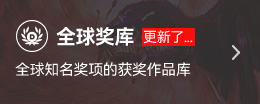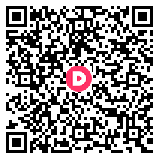
廣告業不在流水線上,廣告案例不是福特T型車,廣告人也一定不會接受弗雷德里克·泰勒的說教。文化是創意的源泉,良好的企業文化,是一家廣告代理商得以征服挑剔的客戶、桀驁的創意人、以及沒有耐心的消費者們的不二法寶。
代理商文化這玩意,任何人放在嘴邊一定頭頭是道,然而從虛無縹緲的說辭轉化為持之以恒的實踐卻并不簡單。廣告公司在草創時期的特立獨行,在其成長為上千人的全球廣告網絡時是否能夠被保留下來是所有管理者的難題。面對不但是地理而且是文化上愈發復雜的客戶構成與員工群體,對文化的保守和妥協似乎是更是一種安全。但是身處這樣一個競爭空前殘酷、無比依賴驚人創意的產業,如果你沒“文化”,你就真的沒文化。
在揚基佬扎堆的國際廣告巨頭中,互動中國有幸接觸到了一位源自歐洲,受到五湖四海文化熏陶的混血兒,以及它的兩位大家長。讓我們跟隨Tom & Keith的腳步,去一窺TBWA這位年輕巨頭的文化觀、人才觀、他們是如何去“顛覆”、又是如何去“經營”的。
采訪/編輯:Wayne Tai
協力:Lena Chen
鳴謝:Rannie Lin @ TBWA SH
(原創內容,轉載請注明來自數英網)
(Tom Carrol=Tom / Keith Smith=Keith / 數英網=Q)
\About TBWA
TBWA是在1970年由美國人William G. Tragos、法國人Claude Bonnange、瑞士人Uli Wiesendanger 和意大利人Paolo Ajroldi聯合創辦的四國聯軍,這為當時被美國人統治的廣告界吹入了一股歐洲之風。1995年在Omnicon的主持下與在創意上更加瘋狂的美國代理商Chiat/Day合并成為TBWA\Chiat\Day,逐漸形成了現在的風格與文化。還記得當年驚為天人的《1984》么?本人在早年也是Chiat/Day的一員 DamnDigital借著TBWA上海辦公室搬遷酒會的東風采訪了其總裁兼CEO Tom Carrol與國際總裁Keith Smith,美國人Tom與英國人Keith在發表真知灼見的同時也充分展現了來自不同文化背景的廣告人的不同。
\Welcome to China
Tom:
“首先因為這是中國,我必須來。”
Keith:
“我們目前在中國已經有了3家辦公室,將來是否會有第四、第五、第六家,是我們來需要研究的問題。”
Q:我們不認為你們這次來到中國僅僅是為了上海新辦公室的揭幕,所以兩位來中國的真正目的是什么?
Tom:3個理由。首先因為這是中國,我必須來。第二,作為CEO我必須不停的拜訪世界各地的客戶們,Keith也一樣,碰巧這段時間上海的新辦公室開張,于是我們得以在揭幕酒會上拜會客戶。第三,我每年都會安排幾次去亞洲的行程,我會過來拜訪客戶,與TBWA中國的管理層們共處一段時間——他們真的很棒,最近贏下了許多新業務。這里很有趣,我們在這邊也很成功,所以我就來了。
Q:所以兩位有針對中國市場的進一步計劃么?
Keith:兩年前我們改變了這里的組織架構并建立了大中華區,現在在上海的辦公室負責整個中國區的市場,并且客戶對此的反響也很好。TBWA有大量的全球客戶:日產、蘋果、麥當勞等等,我們現在也有不少強大的本土客戶,我們本身也在進一步全球化。而我和Tom到這邊來的一個重要目的就是與本土客戶在一起,幫助他們將其業務從本土發展到全球。
Q:你們是如何看待中國本土客戶的?我們知道有些評論認為他們在廣告業務方面需要學習更多。
Keith:讓我們去告訴客戶他們何時該走向全球化,這樣太傲慢了。不過我們可以通過TBWA的國際網絡來幫助他們將本土業務全球化。
Q:那么兩位對中國的二三線城市又是怎么考慮的?我們知道一些大的代理商網絡例如奧美已經在成都、大連等地有所布局。
Keith:因為有麥當勞這樣的客戶,我們已經在二三線城市展開了業務。當然我們并沒有真的在那些城市開設辦公室,我們通過這里為麥當勞在二三線城市進行布局。然而是否有必要真正的在那些地方開設辦公室實體,這也是我們兩個上海之行的原因之一。我們目前在中國已經有了3家辦公室,將來是否會有第四、第五、第六家,是我們來需要研究的問題。
\Culture Matters
Tom:
“現在我們的董事會里出現了巴西人、亞洲人,世界各地的人,這為我提供了一種嶄新的觀察世界的方式。我們是一家文化多元的公司,這一點是我們的巨大優勢。”
“你無須將文化這樣的東西強加于人,文化是磁鐵,自己會吸引人,就像Lee Clow, Chiat/Day一樣,他們阿是磁鐵,我想我們是幸運的。”
Keith:
“不,TBWA是相當民主的一家公司,我們不會自上而下的指示員工去干這干那。”
“對廣告公司來說擁有自己的強大的文化根基是最重要的事,然后你才能在此基礎上發展自己的業務。”
Q:幾周之前我們采訪了DDB的首席創意官Amir Kassaei,Amir表示他每天(因為工作繁忙)只能睡三到4個小時,你們呢?
Keith:在當前的環境中你不可能有時間睡大覺,因為你必須24/7保持在線的狀態,你手頭永遠有一堆問題要處理。Tom和我每周7天都需要保持隨時可以聯系到的狀態,這也是我們能夠將公司管理好的唯一方法。我的意思是當你真正的把自己“全球化”了,你將會24/7的面對做不完的工作。
Tom:我們沒得選啊……我至少沒有他(Keith)那么工作狂,他每時每刻都在工作,每時每刻都在趕飛機,每時每刻都在接電話。我一直努力躲起來,但是人們總會找到我,但是他連躲都不躲。
Keith:所以這是一個道理,你也知道你采訪過的人中有那么一部分也和我們一樣。事實上當你有了許多全球客戶之后,在每天的任何時段他們當中的一些人都會在工作,而當他們在工作,你也必須工作。
Q:那么二位作為TBWA最高層的管理者,是不是意味著從你們口中說出的話就是TBWA的“官方命令”?
Keith:不,TBWA是相當民主的一家公司,我們不會自上而下的指示員工去干這干那。我們會讓員工從公司的最底層開始經營它,我們不是那種老式的老板一言堂的公司。
Q:這一陣廣告業內的兩大新聞是WPP收購AKQA,Publicis收購BBH。很多人會覺得如果控股公司有足夠的資本,那么單純的買賣公司會比經營真正的業務更有利潤,對于這樣的觀點兩位的看法是?
Tom:我認為要么你擁有創意,或者你可以買創意。我們傾向于成為一個擁有創意的公司,然后發展壯大這些創意,我們不大可能會去夠買理念或創意。廣告業總會有有利可圖的收購機會,但這不是我們的策略。相比于收購公司買下創意這種手法我們是自己培育、發展創意的類型。
Keith:如果你不停地收購公司,那你極有可能會失去自己的文化身份。對廣告公司來說擁有自己的強大的文化根基是最重要的事,然后你才能在此基礎上發展自己的業務。(收購這種行為)無論對被收購公司還是控股公司來說都不利于企業文化身份的發展,公司只是一個收購的機器,只關注公司規模的話就不能為客戶的利益服務。
Q:和Omnicon的其他一些廣告公司,例如DDB,BBDO相比,TBWA的優勢在什么地方?
Tom:我們和他們不同。你要知道DDB和BBDO比我們早出現太多,他們都有超過80年的歷史了,而我們從創立到今天才30年有余。我們比他們更年輕,也更為不同。我們有不同種類的客戶,我們的組織架構不同,我們和他們分別在特定的細分市場中保持優勢,你知道我們在中東和這里(亞洲)的力量很強大,我們在洛杉磯的辦公室很龐大,BBDO在紐約的辦公室很龐大,DDB在芝加哥有一座很大的辦公室,而且我們隨時隨地在與這些公司競爭。
Tom:其實不同之處在于:我認為我們能和任何一家公司競爭。在中國我們和Leoburnett,Ogilvy&Mather,Wieden Kennedy, BBH這些機構競爭,在洛杉磯我們與當地非常出色的一家公司Deutsch競爭西南航空的比稿。所以總的來說,我們既和Crispin+Porter, Wieden Kennedy, BBH競爭,也和BBDO, Leoburnett, Ogilvy&Mather有競爭關系。
Tom:我能這么說,沒有任何一家公司能像我們這樣勇于挑戰,我們能正面迎接任何挑戰。在大客戶或者誘人的機會、流行文化命題面前,我們無所畏懼,敢于和任何人競爭。我們能做任何我們想做的事情,所以到底TBWA是更優秀還是更不同?我想答案是后者,我不覺得自己比別人更好在哪,只是不一樣,我們更年輕。
Keith:我們更迅速,而且我覺得我們比較聰明。我們有最好的策略,因為別人沒有這樣的策略所以我們更有優勢。我們把這個策略推廣到全世界,當我們最初創立Disruption(顛覆性創意)的時候,每個人都認為不管在哪它是不可能奏效的。但是現在它在紐約奏效了,它在每個地方都奏效了。任何一個想要找到進入市場的新途徑的聰明的客戶都該來TBWA,因為我們能夠為他們提供這樣的新線索,新途徑。
Q:Keith提到文化對于代理商有多重要。他是英國人,你是美國人,在TBWA這樣一個多元文化的大家庭里,文化除了碰撞出創意之外,是否也會造成沖突呢?
Tom:是的。14年前回到TBWA的時候,我是董事會上唯二的美國人之一,那里有法國人、荷蘭人、英國人……沒去那兒開會之前我都不知道英國人和法國人有多互相憎恨對方,他們會互相勾心斗角,至于斗些什么反正我這種單純的美國人完全摸不透。現在我們的董事會里出現了巴西人、亞洲人,世界各地的人,這為我提供了一種嶄新的觀察世界的方式。說實話,我不想當一個美國人,雖然我的確是,但是我的行事和邏輯都不“美國”。我們是一家文化多元的公司,這一點是我們的巨大優勢。Chait/Day也是如此,BBDO也是如此,(國際化的)大公司最終都會如此。實話實說,我不會去美國式的公司里工作,那樣的地方太無聊了。你能想象(企業)在全球化、網絡化的同時還是一維的嗎?
Q:那么當TBWA在全球部署戰略的時候,會不會有意的在分公司部署自己的企業文化?
Tom:這又是一個另一個好問題,一個非常好的問題。我們在媒體藝術上有自己的核心方法論DISRUPTION,即顛覆性創意(詳見百度百科)。像你提過的Jean-Marie,Lee Clow這些人想要有這種能夠為他們所依賴,正確指引他們前進的東西。我們沒必要去把文化強加于他人,“/”的標識就在這里……如果你去巴西,你以為你到了洛杉磯;如果你去南非,那可能看起來像阿姆斯特丹,而阿姆斯特丹又看起來LA,這你無需告訴任何人(他們也能明白)。同樣的道理,你無需將文化強加于人,人們自然會理解它。
Tom:我們真正擅長的東西是,“我們每月強調一些事實,借此經營TBWA”“我們早在大眾流行Twitter和Facebook之前就有Twitter來源,有Facebook的主頁”“TBWA是能讓你走出去的一個地方,我們有大量的培訓,非常非常多的培訓。我們有專門為30歲左右的年輕人開設的Tiger學院,我們會帶他們走遍世界各地。可能這次是中國,下次是印度,在下次是…我會親自帶領這30個人去某個地方,今年是巴黎,去年是紐約,前年是上海。我們就這樣不停地換地方。。。讓這些人不停地遷徙。”
Tom :“我從來沒有在同一個地方開過集團會議,我們每次都在不同的地方。所以如果有次是在紐約開會,對我來說把所有人召集到紐約不是件難事。“各位,來吧,我在紐約等著你們”我不想過那樣的生活!你無須將文化這樣的東西強加于人,文化是磁鐵,自己會吸引人,就像Lee Clow, Chiat/Day一樣,他們阿是磁鐵,我想我們是幸運的。”

TBWA的兩位創意大佬:大名鼎鼎的Lee Clow與顛覆性創意的發明者Jean-Marie Dru
\Talent To Attract Talent
Tom:
“錢與認可。員工希望得到的是合理的薪水與被認可的感覺。如果你是個創意人——我不管你是不是一個好相處的人——你一定是為了讓自己的天才被認可才將入這個行業的。”
“這不是無政府主義,這是一種“被完美規劃的混亂”。(It isn’t anarchy, it’s just well planned chaos. )”
“廣告是一門關于直覺與互動的產業。(It’s about intuition and interacts.)”
Keith:
“TBWA是一家非常民主的公司,每一個員工第一次踏進公司我們就會告訴他們:‘你可以來為我們最大的客戶服務。’我們不會自以為是的說:‘你,做這個客戶。’”
“并且因為我們在全球都擁有最好的創意人,所以這項資源也會像磁鐵一樣吸引更多的優秀人才來為我們工作。”
Q:像TBWA這樣的大型代理商通常都會將工作環境裝點的十分漂亮與舒適,廚房、沙發、游戲設施一應俱全。但是也有一種聲音認為這種“家一般的周到”也會讓員工不知不覺工作得越來越晚……
Tom:這是廣告業。廣告業沒有朝九晚五,你不知道在什么時候創意會蹦出來。有些時候你必須連著5天每天工作18個小時,然后再連著放四天假。你必須把工作完成,但是你又不知道好創意什么時候會發生。而在一個(生產)創意的環境中,員工必須保持舒適、放松、可以四處走動、必須能夠進行思考。對我們這樣的創意公司而言,辦公環境實在是非常非常重要。這并不只是針對文案與設計師這類“創意人”,而是針對公司內部的每一個人。你需要保持靈活、四處走動、絞盡腦汁想出新點子,而不是窩在你的辦公桌前對著電腦寫代碼。你所做的不是銀行業,也不是會計,你所做的是絞盡腦汁想創意,所環境非常重要。你們有看過我們在洛杉磯的辦公室么?
Q:是的,從你們的官方網站上看到過。
Tom:那就對了。那里是世界上最有創意的辦公室。當你在那里工作,你能體會到那是一個不斷運動的地方,到處走動,喝杯咖啡,來一杯啤酒,或者來兩杯啤酒,然后繼續想創意。因為如果永遠只是坐在桌子前,三天之內你就想不出任何的好點子了。

TBWA\Chiat\Day 位于洛杉磯的辦公室——"An Advertising City"
Q
:所以某種程度上廣告業其實挺累人的,而人才對于廣告公司來說卻是至關重要。兩位覺得用什么方法才能夠最有效的打動員工呢?
Tom:錢與認可。員工希望得到的是合理的薪水與被認可的感覺。如果你是個創意人——我不管你是不是一個好相處的人——你一定是為了讓自己的天才被認可才將入這個行業的。所以我們必須保證真正有天才的人為我們所用,我們給他們最高端的客戶,我們會給予他們認可。
Keith:這樣做才是正確的。TBWA是一家非常民主的公司,每一個員工第一次踏進公司我們就會告訴他們:“你可以來為我們最大的客戶服務。”我們不會自以為是的說:“你,做這個客戶。”我們為那些有創意,并且有進取心的人才創造了非常好的空間。
Tom:我們在公司內部保證了任何人都可以對任何人說任何事情。任何人都可以向我說他們想說的東西,并且他們不會因為諸如對我說:“你的主意太蠢了。”而受到任何責罰——事實上他們經常這么對我說話。我不能忍受那種畏首畏尾的工作環境,我希望每個人都能暢所欲言。這不是無政府主義,這是一種“被完美規劃的混亂。”(It isn’t anarchy, it’s just well planned chaos. )因為混亂才能誕生突破性的創意,你需要去破壞,需要去顛覆。
Q:另一方面,你們選擇工作伙伴的標準是什么?對于新員工,他們需要必備哪些素質?
Keith:每個TBWA的員工都是創意人。我們不會將員工看成“你是做客服的,他是做創意的。”我們一直認為TBWA是世界上最有創意的公司之一,所以我們只雇傭最有創意的人才,不管他們是學什么出身。我們為那些希望為大客戶做出與眾不同的精彩作品的人敞開大門。
Keith:成為TBWA員工的門檻非常高,因為我們要最好的那一批,并且因為我們在全球都擁有最好的創意人,所以這項資源也會像磁鐵一樣吸引更多的優秀人才來為我們工作。
Keith:對于新員工,我們需要的是野心、個性與愿意改變的決心。
Tom: 我喜歡幽默、聰明的人。事實上在這一行沒有什么金科玉律為你所準備。世界上沒有一本關于營銷的書值得一讀,也沒有一本關于廣告業的書值得一讀,我從來沒見過任何一本。廣告是一門關于直覺與互動的產業。(It’s about intuition and interacts.)而“直覺”就包括了幽默感,包括了對如何讓人們活躍起來的了解。所以有一個直覺非常敏銳的大腦你才能在廣告圈內玩的轉。你需要抓住人們的注意力,給他們想要的東西,然后反過來請他們為你的品牌做出貢獻。這里面就需要直覺。
Q:說到人才,我又想到一個問題:你們是怎么看待中國本土的創意人的?
Tom:他們每天都在變得更強大。相比10年前他們變強了太多。最近幾年我們在中國獲得了許多突破性的發展。
Keith:你自己看就會知道。要知道是TBWA中國用阿迪達斯的案例拿到了中國本土第一個戛納金獅,而且還是早在2008年。這個案例是中國創意人開始不斷贏下戛納獅子們的開始。世界上最好的代理商在中國的辦公室里充滿了中國的年輕人,并且盡可能多的吸收這些本土人才是非常重要的一件事——不管你喜不喜歡。這些人將會改變世界。
Tom:你知道昨天晚上我與客戶們講了一個什么故事么?10年前,當我走進TBWA上海的辦公室,每個人都保持沉默,看上去像是被嚇到了。5年前我再度走進這里,所有人都在議論:“那是誰呀?”而今年他們會主動過來與我握手:“Hi Tom,你好,我是Jo。”從擔驚受怕到熱情開放,只用了10年。
Tom:而整個廣告行業,整個創意部門也在發生著這種變化。越來越多的中國年輕人才涌現出來,越來越多的中國人才走向戛納。不過(中國創意人的強大)還需要時間,但是他們已經對自己有了信心。
Q:你們說他們正在變得越來越強,那本土創意人的水準是否已經達到了國際性的標準?
Tom:當然啦。你們和我們沒有什么不同,雖然目前廣告創意界依然被美國人和英國人所統治,但是巴西人、阿根廷人、荷蘭人,許多許多國家的天才已經在這一行里有立足之地。中國創意人也是如此,這只是時間問題,如果你去觀察中國的年輕人,你一定會同意我的看法。
Q:既然如此,那我想問一個不太客氣的問題。如果中國本土創意人如兩位所說的那么強大,為何在大陸廣告圈中他們總會遇到薪資與職業晉升上的不平等?甚至有時候不如港澳臺同胞。在TBWA中有類似情況發生么?
Keith:沒有,TBWA中沒有等級之分。臺灣廣告人在這個行業的實踐要比大陸廣告人長很多,如果他們有獲得更好的機會,這是唯一的原因。
Keith:你要知道,廣告在中國大陸是新興產業,只有十幾年的歷史。它還需要時間(去發展),并且它的發展速度已經越來越快了。所以我們一直在這里尋本土人才,并且尋找那種愿意在世界各地工作的中國本土人才,TBWA一直以來都有讓員工在全世界不同的辦公室工作的傳統。我們會和他們說:“你愿意去紐約或者倫敦工作一段時間么?”
Tom:我們的洛杉磯和紐約辦公室都有中國年輕人的身影,他們有一些在美國長大,有一些在美國讀大學。很有趣的是,你的觀點是中國與中國的廣告人才(被低估了),而的我觀點正好相反。因為我感覺到中國的人才就像脫軌的火車一樣前進的速度越來越快,野心越來越大,而且已經無法被阻止,也許你看到的和我不一樣……
Keith:不,你說的很對,不過你也要考慮到廣告業的數字化革命為中國的青年人才打開了這項產業的大門。像我們這樣出生在30秒TVC時代的人已經落伍了。
Tom:我們老了。
Keith:所以中國的年輕人擁有的是一套(與我們完全不同)的技能,他們將打開一個全新的未來,某個人坐在這里(上海)就能夠為遠在北美的品牌服務。
\Keep Ahead Of The Clients
Tom:
“要是客戶人看起來還不錯只是他不需要創意,那我會告訴他你何不去找不關心創意的公司,因為外頭有很多公司愿意拿著你的錢為你做出一些劣質的廣告,雙方都能獲益,但我們不是這樣的公司。”
“你不能將蘋果與世界上其他任何一家公司相比,坦白說,我們的其他客戶會對我們開門見山:‘我們不是蘋果。’”
Keith:
“先客戶一步(Keep ahead of the clients),如果你不比客戶先考慮到他們的業務問題,競爭者會不留情面地發展壯大自己的品牌和業務。”
“在中國有多少廣告公司?太多了。如果你不能比客戶和市場預期提前一步,那你就會陷入困境。”
Q:兩位都是Account出身,對嗎?
Tom: 對。
Q:我們談到了客戶管理的問題,問個棘手的問題,TBWA挑選客戶的標準是什么?你們的確會挑客戶,是嗎?
Tom:是這樣的,我們是非常有創意的公司,Chiat/Day, TBWA都是創意機構。要是你不懂得和創意打交道你是沒辦法在TBWA做客戶服務的。我不清楚你們能不能區分,如果客戶上門找我們,我們就知道他是不是在找創意,好的創意,要是他們不想要好創意他們是不會找我們的。
Tom:要是客戶人看起來還不錯只是他不需要創意,那我會告訴他你何不去找不關心創意的公司,因為外頭有很多公司愿意拿著你的錢為你做出一些劣質的廣告,雙方都能獲益,但我們不是這樣的公司。客戶來找我們是因為他們想要好的創意,所以當有客戶尋求代理的時候我們會清楚的知道我們追求的目標是否一致。
Keith:看看我們所擁有的東西,別忘了我們有令人難以置信的策略工具——Disruption(顛覆性創意),如果我的客戶不喜歡Disruption,如果他們不想通過做一些不同的嘗試來使自己的品牌變得更強大,這就變成自我選擇的問題了。好的方面在于現在聰明的客戶會說:“嘿,我們不能像其他人一樣做大家都在做的事,我們需要做一些不同的事。”而這正是“顛覆性創意”所能做的,我們的這個理論幫助我們抉擇該客戶是否適合與我們合作。
Q:好,另一個事實是數十年來你們已經成功地保持與自己核心客戶(像蘋果、阿迪達斯、絕對伏特加)的關系,有什么秘訣么?
Keith:先客戶一步(Keep ahead of the clients),我是指你必須不斷地激勵自己,不斷地產出好的作品,還有你必須先客戶一步。如果你不比客戶先考慮到他們的業務問題,競爭者會不留情面地發展壯大自己的品牌和業務,后果將會是你丟了這個客戶。
Tom:客戶都想要好的作品,好的創意,所以我們招納有創意的人才,逐步建立自己的文化。像蘋果、阿迪達斯、尼桑這樣的客戶都追求好創意。然后好的創意人才愿意來TBWA,我們才能創造有自己活力的文化。正是因為有客戶在鞭笞我們創意還不夠好、還要更好,我們才能在原來的基礎上更前進一步。公司就是這樣創造出自己的生機,自己的文化。所以在廣告界有這么個說法:“客戶總是能得到他們想要的創意”。那些客戶要好的創意,客戶自己創造了文化、活力和正面能量。
Q:所以就是說你使自己成為客戶的最好選擇。
Keith:沒錯 Tom:你必須這么做。
Keith:這是一項艱難的工作。在中國有多少廣告公司?太多了。如果你不能比客戶和市場預期提前一步,那你就會陷入困境。
Q:最難回答的問題來了:有些客戶很大,有些客戶很特殊。但是“蘋果”是又大有特殊。像蘋果這樣的客戶是每個公司都覬覦者想分一杯羹的,那么你們如何與像蘋果這樣重要的客戶維持一個穩定的合作關系的?
Tom:你不能將蘋果與世界上其他任何一家公司相比,坦白說,我們的其他客戶會對我們開門見山:“我們不是蘋果。”蘋果有它的獨到之處,世界上沒有其他客戶像它一樣,蘋果公司的運營機制和別人都不一樣,我們和它的合作關系也自然是完全不同的。運作蘋果的Media Arts Lab我們獨創的主張,我們在這方面有優良的管理,所以蘋果這個客戶是個艱難的挑戰,它很特別。我們之間有了很長一段時間的特別的合作關系,如果你有興趣研究他們的運作機制,這是一個不走尋常路的親密的文化,我們正附屬于這個文化。好的公司將自己的文化與客戶的文化相融,然后自然就奏效了,你能看出不同。
\The Backslash
Tom:
“正如你所知的,好的設計師都熱愛“簡潔”,像Lee Clow設計出‘\’這樣簡單卻蘊含無限意義的符號。這全是他的功勞,‘\’是Lee Clow的,沒有別的解釋。”
“他是我在職業生涯里遇到的最完美的人,他是我認識的人里面最才華橫溢,最有禮貌,最好的人。”
Q:說到TBWA logo里的“\”(Backslash),它原先就是TBWA的logo還是后來加上去的?
Tom:這是Lee Clow的心血,是他發明了“\”和“Chiat\Day”。然后我們把“\”帶到了TBWA。事實上Lee Clow非常喜歡設計,他是一名真正的設計師。正如你所知的,好的設計師都熱愛“簡潔”,像Lee Clow設計出“\”這樣簡單卻蘊含無限意義的符號。這全是他的功勞,“\”是Lee Clow的,沒有別的解釋。他對自己的這個設計也很喜歡,是他賦予了“\”全部的意義,這也是為什么他是最好的創意者:他能夠為最簡單的理念賦予意義,別人都想不到的意義。

Q:他退休了嗎?
Tom:沒有,他假裝自己退休了,他九月份會在法國,他今年沒有去戛納,明年應該會來。他是我在職業生涯里遇到的最完美的人,他是我認識的人里面最才華橫溢,最有禮貌,最好的人。
Q:他可以和Steve Jobs一起工作。
Tom:沒錯,他是Jobs的反面。我們和他一起在做一個很重要的阿迪達斯項目的事情的時候,他做了很多事情,多的超乎你的想象。但是他為人很低調,這是他想要的,他想達成的期望是自己能怡然處于任何地方。所以他就是這么一個好人,這也是你見不到他的原因,他太低調了,他有自己的計劃。
Original Interview Transcription In English:
INTRODUCTION:
The advertising industry is not like Detroit automation, the advertising work is not a Ford Model T, and the advertising people are not necessarily convinced by Frederick Taylor. Culture is the source of creativity; on the other hand, good corporate culture is how an advertising agency can manage its picky clients, unruly creative people, and impatient consumers.
Anyone can talk about the culture of advertising, however, to put it into practice is much more difficult. An advertising agency can act its own way in the initial stage, but the challenges comes when it becomes a global network made up of more than 11,000 people.
Facing the geographical and cultural differences of the clients and employees, sometimes it’s easier and safer to go the conservative way. However, in order to survive in the competitive advertising industry, which requires significant creativity, the culture of the agency is the key. In an advertising world dominated by the US companies, DamnDigital is honored to get to know a European-American hybrid network and interview two of it’s key leaders. Let’s follow the steps of Tom Carroll and Keith Smith and go deep into how they disrupt and manage the agency, as well as the origin of TBWA and its talent.
Interview:
Wayne: Weeks ago we interviewed DDB CCO, Amir Kassaei. He said he didn’t sleep much, only three to four hours a day. What about you?
Keith: You know, it’s impossible now in the world we’re living in, which is 24/7. It’s impossible to sleep because you’re always online; you’re always having issues that are rumbling all the time. Tom and I are in constant touch, seven days a week, because that’s the only way to truly manage a company like this one. When you’re truly global, when you’re online 24/7, you have to be “doing stuff” the all the time.
Tom: We have no choice… I’m not as bad as he is. He (Keith) is nuts – he works all the time, he flies all the time, he’s on the phone all the time. I try to hide, but they find me. But he doesn’t hide.
Keith: It’s a fact of our business, because you know we have a lot of global clients who are online the whole time. I mean, somewhere in the world, somebody in always working.
Wayne: So, being very top executives as you two are, the word come from both of your mouths is the “official announcement,” is that right?
Keith: We have much a more democratic company. We don’t just have people from the top-down telling people what to do. We have people who drive the company from the bottom. We are not an old-fashioned, hierarchical company. And in China we have some fantastic, very smart people working in this company and we are growing very fast.
Wayne: We don’t really think both of you came to China just for a grand opening event. Why are you actually here?
Tom: Four reasons. First of all, this is China. It’s a very important market so I have to be here. As CEO, I walk everywhere in the world to see our clients, our management teams and our people, as does Keith. And it just so happened that we have a grand opening party last night to celebrate the agency’s new offices. We spent time with the entire China management team this week and they are doing fantastic, winning a lot of new business. So we are celebrating their success.
Wayne: So do you have to draft a further plan for Mainland China?
Keith: Two years ago we changed everything when we created a Greater China region. Our management from this office runs the entire China market, and our clients are responding well to that. Even in China we work with a lot of global companies, like Nissan, Apple and McDonald’s, but we also have very strong local Chinese clients. We are growing globally and locally, and one of the great things about coming here is to spend time not just with our global clients, but with our China clients too, to talk to them about how we can help grow their business globally.
Wayne: So what do you think about the local clients? Some people say they still need to be educated in advertising.
Keith: I think it would be arrogant for us to tell them when and how they can grow globally, but what we can do is help them grow globally because we have a fantastic global network and clients that plunge into this network are really working with the best people, so we can truly help them to scale globally.
Wayne: And do you have any strategy on second and third tier cities in China? As far as we know big firms like Ogilvy have opened branches in cities like Chengdu and Dalian.
Keith: Yes, we already work in second and third tier cities, because we have clients that operate in those cities, like McDonalds. In some markets we have offices and in others we don’t so we work from here (Shanghai) across those markets. We work in the cities where our clients are and we look to see if need to physically take people to those markets. We have three big offices already in Mainland China and we are working now on whether we need to have fourth, fifth and sixth offices.
Wayne: I heard a lot of people saying that agencies like, big like you have amazing and satisfying working environment like this, with kitchens, sofa, etc. They say it's just a trap to make this look like a home, then to keep people work late.
Tom: Well this is advertising, so there’s no such thing as time. It isn’t nine-to-five. Sometimes you can work 18 hours a day for five days straight and then take four days off. You have to get the job done when it needs to be done. In a creative environment, you have to be comfortable, relaxed and able to thinkand be flexible – that’s when ideas will come. You need a lot of action so the environment is hugely important to a creative company like ours, and that doesn’t just mean for the copywriters and art directors, it’s for everybody in the company because you don’t know where the best ideas will come from. You need to be fluid, move around, try to think up something new – you’re not sitting at your desk, doing code from your computer or doing the accounting. Have you ever seen a picture of our Los Angeles office?
Wayne: Yes, on your website.
Tom: Yes, look at that place – it’s the most creative office in the world. When you work there, it’s just the constant motion. If you just sit in one place all the time, you won’t get new ideas.
Wayne: Sometimes advertising can be a frustrating industry and manpower is essential to an agency. What do you think is the most effective way to satisfy and entertain staff?
Tom: Money and recognition. Do you know what I mean by recognition? People want to be fairly paid and they want to be recognized. If you are a creative person, you want to be recognized – that’s why you’re in this business. Talented people work in places where they can work on really high profile accounts so they can say, “I DID THAT!”
Keith: We’re a very democratic company so when new talent joins our team, they get to with our biggest clients. We don’t have a top-down hierarchy so if you’re a creative, ambitious, talented person, we have an environment where you can thrive.
Tom: We make it a point that anybody can say anything to anybody – anybody in this company can say anything they want to me, and they won’t get in trouble and we won’t tell them “that’s a stupid idea.” You can’t worry about hierarchy in a creative environment – people don’t want to live that way. It isn’t anarchy, it’s just well planned chaos, and chaos creates. That’s how you get the breakthrough ideas. You have to be able to disrupt.
Wayne: How do you find new talent and hire the right people? What is your standard?
Keith: We have some of the best creative talent in the world. Everybody in our company is a creative person and our standard is to hire the most creative people, no matter what their discipline may be. We try to open our doors to people that want to come and do different, exciting work for big clients. Our standard is very high because we want the best. And when we have the best, it’s like a magnet – it attracts more of the best talent to come and work with us.
Wayne: So more specifically, what is the bottom line of talent selection? At least, they need to have some characteristics you require…
Keith: Ambition along with character, and a willingness to change.
Tom: I like smart people with sense of humour. The truth of this business is that there’s no book that you could read to prepare you to work in advertising. This business is about intuition and interaction, having a sense of humour and understanding what makes people tick. These qualities are the most important. Then, you should give people your attention when they are trying to do something, give them the benefit of the doubt and a chance to do something different.
Wayne: So I have a question: What do you think the level of creativity and talent is in China?
Tom: It just keeps getting better. Ten years ago, I wouldn’t have known I was in an ad agency. Now we have terrific, breakthrough work coming out of China. It is only a matter of time.
Keith: TBWA won China’s first ever Gold Lion at the Cannes Lions Festival in 2008 with the adidas Beijing Olympics campaign. That was a start, but if you look now, there is more and more from China winning at international festivals like Cannes Lions. And, in fact, the best advertising agencies are full of young, smart people so it’s important to try and get as many of those people working on the big brands that matter, especially in China. They will change the world.
Tom: I was explaining this to a client last night…Ten years ago, when I came into this office, everybody would be silent, shy and scared looking, Five years ago, everybody would say, “Wow, who is that?” and start to approach me. This year, it’s more like “Hi, I’m Jo. You’re Tom.” Everyone wants to introduce themselves, tell me what they are working on, shake my hand. In 10 years, we are much more social. But that’s the environment, this agency. It’s how creative people express themselves – they are stretching and coming out. It takes time, it doesn’t happen over night, but more and more Chinese kids are like this and they are the young talent, the ones that will be winning Cannes Lions.
Wayne: You say they are better every day, but are they good enough at an international level?
Tom: Why not? You have read books. You go to school. You watch films. There is no difference. There is no special talent. Although it is an interesting question, because the Brits have always seemed to have a disproportion at amount of creative talent. Their country is so small. And the US does very well too. The US and the UK have dominated the industry, but there are a lot of countries coming up creatively – China, Brazil, Argentina, Holland.
Wayne: If the Chinese talent is good enough for international level, why does Mainland China have a salary gap or glass roof? Is this happening at TBWA?
Keith: No, we don’t have this. But remember, the advertising business in Mainland China is a new business. It has only been around for 10 years or so, so it is still scaling, but it’s happening faster. Now we are looking out our talent in China and asking them if they want to work in other offices around the world – New York, Los Angeles. This is what we do – we move people around frequently if they want different experiences.
Tom: We already have Chinese talent around the world – in New York and LA – kids who grew up there too, and went to school in the US. It’s funny because your perespective and my perspective are the opposite: I feel like Chinese talent is coming up so quickly. You are so ambitious – no one is going to be able to stop this.
Keith: The revolution that’s happened in the digital world just opens it up for Chinese talent as well. We grew up in a conventional world, creating 30 second TV spots. That era is over.
Tom: We’re old.
Keith: Chinese talent has grown up with a whole different set of skills. They just open up the whole world. Anybody sitting here now could be doing great work for a brand in North America. You know, it’s a virtual world that we live in now.
Wayne: Both of you are account men, right?
Tom: Correct!
Wayne:So we are talking about client management, and this question is a tough one, what is your selection standard for clients? You do chose client, right?
Tom: Here is the deal. We grew up in very creative agencies. Chiat\Day, TBWA… you couldn’t be an account man in these agencies if you weren’t capable being creative. When clients come to us, we know they want good creative. People come to us because they want this. There are a lot of agencies out there that will take your money and do some crummy ads for you. This is not us. People come to us because they want creative. It just happens.
Keith: We have an incredibly strategically tool called “Disruption”. And we work through this process with our clients, helping them understand how their brand can be bigger, how to do something different. This is a self-selective process and the clients that end up working with us are the ones who say, “We can’t keep doing the same thing and getting the same results. We have to do something different.” That’s what Disruption helps us do, and it helps select the clients that will feel most comfortable working with us.
Wayne: Okay, another fact is that you have successfully managed a good relationship with some of your most essential clients, like Apple, adidas, and ABSOLUT Vodka, for decades. So what’s the trick?
Keith: You have to keep stimulating, you have to keep providing, you have to stay ahead of your clients. If you are not ahead of your clients, in terms of thinking about their business and developing that will take their brands to the next level, then you won’t keep clients.
Tom: All clients want good work and good creative – clients like Nissan, Apple and adidas. Therefore, we hire the best creative talent and create the culture. This culture takes on an energy of its own. There is a saying in advertising, “Clients get the creative they ask for.” Those clients ask for good creative because it creates its own culture, its own energy and it is positive.
Wayne: So you make yourself the best choice to the clients.
Keith: Yes.
Tom: You have to. I mean you HAVE to.
Keith: It is a tough business. How many advertising agencies there are in China? There are a lot. If you’re not out ahead of what the client and what the market expect, then, you will get caught out.
Wayne: So the toughest question is, some clients are big clients and some are special. But Apple is both, and every other agency wants a piece of this client, so how do you successfully keep a steady relationship with a client like Apple?
Tom: You can’t compare Apple to any other company in the world. And to be honest with you, every client, they come to us and say ‘We are not Apple.’ Apple is unique. Their company operates differently than anyone in the world and our relationship with them is completely different. TBWA Media Arts Lab, which handles Apple, is our unique proposition. We have very good management there and it has been a special relationship for a long time. If you look the way they operate, it is a very closed culture that operates in special type of way and we have adapted to this culture. Good agencies align their culture to the clients’ culture and somehow it just works.
Wayne: There are two big pieces of news in the advertising industry: WPP recently acquired AKQA and Publicis acquired BBH. Many people think that if the holding company has enough capital, then buying and selling companies is more economically profitable than running real businesses. What do you think about such an opinion?
Tom: I think you can either have an idea, or you can buy an idea. We tend to be a company that has ideas and we try to grow those ideas. We are less prone to buy ideas. Making good acquisitions can be good for your business, but that is not our strategy.
Keith: If you keep buying companies, then you lose those identities. The most important thing for an advertising agency is to have a strong culture, and your business grows from that. If you just keep adding companies on, what is your culture? It doesn’t help develop a strong culture for the agencies or for the holding company. It just becomes a mass of acquisitions, not about doing the right thing for clients. It is just about size and that doesn’t help a client.
Wayne: Compared with other Omnicom agencies like DDB and BBDO, what is TBWA’s strength?
Tom: We are just different. Remember, DDB and BBDO are much older than we are. BBDO was 80+ years old. DDB also. We are just 40 years old. We are much younger and have much different clients than they do. Structurally we are different too – we are stronger in certain markets than they are. We are strong in the Middle East and in Asia. We have a very big agency in Los Angeles. BBDO has a very big agency in New York and DDB has a very big agency in Chicago. We are competing all the time, but we compete against everybody. If you look at China, we frequently pitch against Leo Burnett, Ogilvy & Mather, Wieden + Kennedy and BBH. Last week in LA we pitched Southwest Airlines against Deutsch, which is a great agency in US. There, we compete against Crispin+Porter, Wieden + Kennedy, BBH, BBDO, Leo Burnett and Ogilvy & Mather. There is nobody who, I would argue, can fight everybody like we can. We can go against anybody we’re up against. We are able to compete on the biggest accounts or we can go in with a very hip, cultural proposition. We can go any place that we want to go. I don’t think it’s a matter of being better, just different. We are younger.
Keith: We are quicker. We are smarter. We have the best strategy and we have Disruption and Media Arts. Disruption is the starting point for any brand, global or local. It drives the strategic development of our client solutions by challenging and overturning the conventions of any marketplace and it creates a common language and understanding across our network for the brands we lead.
The other half of the equation is to make sure that we craft an idea brief from the right perspectives and engage the right disciplines so that we make full use of the Media Arts landscape.
Every agency in the TBWA network is fluent in Disruption and Media Arts. It means that we are all constantly evaluating and documenting the shifts in the media landscape and their impact on audience behavior. And it is this commitment that allows us to serve global brands differently than our competition. Smart clients know they can come to TBWA to find new ways of going to market.
Wayne: Let’s talk about the backslash “\”. Is it part of the original TBWA logo or was added on years later?
Tom: Lee Clow invented the Backslash with Chiat/Day and then we took the Backslash to TBWA. Lee loves design, he is an art director. Good designers, as you know, can find something meaningful in something so simple. Lee loves this and he made it have meaning, which is why he is a creative maverick.
Wayne: What is Lee doing now, is he retired?
Tom: No, Lee pretends to be retired. He will be with us in France in September. He didn’t come to Cannes Lions this year, but he will come next year. He is the nicest person I have ever worked with in my career. He is the most talented and the most civil – the nicest man I have ever known.
Wayne: He can work with Steve Jobs.
Tom: Yes! Think about that, right? Lee does a lot of stuff. More than you think. But he has just gone lower profile. He doesn’t want to create an expectation that he can be anywhere, any time. But he hasn’t gone away… his plan’s different.
Wayne: Keith has mentioned how important culture is. He is British and you are an American. Is there any cultural conflict in TBWA and how do you solve it? Because culture is where ideas come from, right?
Tom: Without question. From the time when I first joined TBWA and then came back 14 years ago, there was a board, and I was the one of only two Americans on the board. There were French, Dutch, and British. And I didn’t really understand how much the French and the British hated each other until I was sitting in these meetings. They would be playing games with each other. What was going on? I was a dumb American. Now we have Asians and Brazilians on the board. We have everybody on the board and it is such a modern way to look at the world. I don’t want to just be an American. And TBWA’s headquarters might be in America but it runs like a multi-cultural company. We think that is a huge strength for us – that we’re bringing in the entire world. Chiat\Day was very much that way. TBWA was very much that way. BBDO was very much that way. To tell you the truth, I wouldn’t work in an American company. It is not interesting. Can you imagine and understand being part of a global network and being one-dimensional? It would be so boring.
Wayne: So when TBWA deploys strength worldwide, will you just impose that culture in those markets?
Tom: That is another good question. You know what is really interesting? We have these tools called Disruption and Media Arts, and people around the world want something to hold on to, to guide them. We don’t have to impose aculture. The backslash is here, right? If you go to Brazil, it looks like Los Angeles. If you go to South Africa, it looks like Amsterdam. You don’t have to tell anybody r impose ia culture on anybody. Already people can’t get enough of it.
And what we are really good at is creating this internal culture – highlighting the great stuff that happens across our network. Each month we do these newsletters called “What If?” and we have an intranet called MyTBWA. We have Twitter feeds and Facebook pages and we do tonnes and tonnes of training. We have our Tiger Academy, which brings together our rising stars from around the network. We’ve done Tiger Academies in Shanghai and New York, this year it will be in Paris. We just keep the places flowing and we keep moving people around.
We never have the same meetings in the same places, ever. It would be easy for me to make everybody come to New York, since I am in New York. But I don’t want to live that way. We have a different kind of culture. Chiat\Day, Lee Clow, Disruption, Media Arts – it is all a magnet. We are very lucky.
轉載請在文章開頭和結尾顯眼處標注:作者、出處和鏈接。不按規范轉載侵權必究。
未經授權嚴禁轉載,授權事宜請聯系作者本人,侵權必究。
本文禁止轉載,侵權必究。
授權事宜請至數英微信公眾號(ID: digitaling) 后臺授權,侵權必究。





評論
評論
推薦評論
暫無評論哦,快來評論一下吧!
全部評論(0條)